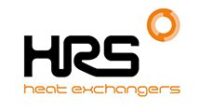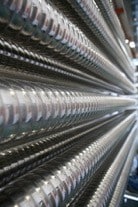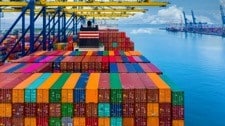
Member press release – HRS managing ongoing supply chain challenges
Like other manufacturing businesses, HRS Heat Exchangers has had to adapt its day-to-day operations to cope with the supply chain disruption caused by the COVID-19 pandemic and increased demand in the post-COVID recovery period.

Here, HRS International Sales & Marketing Director Matt Hale outlines some of the steps that the business has taken to maintain production and minimise disruption to customers and clients. The Coronavirus pandemic has brought the interdependency of the world’s supply chains into sharp focus.

Manufacturing, raw material production, global shipping (and container services in particular), road haulage and aviation have all been affected by a shortage of both workers and resources. Like Coronavirus itself, the supply chain difficulties which the world continues to experience today, almost two-years after the virus was first identified, originated in China and have swept around the world, leaving businesses and consumers to deal with products and supplies which are delivered late, or not at all. Not surprisingly, these restrictions in supply have seen massive rises in the prices of raw materials, finished goods and transport services, with almost all aspects of the global economy currently subject to high levels of inflation.
One part of the system which has been affected in particular is the just-in-time delivery network which has seen manufactures and suppliers hold increasingly small stocks of product as they have always been available on call from suppliers. Consequently, like many other manufacturing companies one of the first actions that HRS took to mitigate the effects of the pandemic was to increase its stock of raw materials, and steel in particular. While there are obvious economic implications for the business from increasing stock levels, the alternative is being unable to produce orders, meaning that it is a small price to pay.
We have also looked to increase the number of suppliers that we deal with and introduce increased geographical variation into our supply base. As well as a shortage of steel, there is now a well-documented global shortage of semi-conductors and microchips, which has adversely affected the motor industry and other sectors. With limited sources of these products, we are reliant on the excellent relationships we have built with our long-term suppliers over many years.

With manufacturing facilities in three countries, HRS is well placed to quickly adapt to ongoing changes in staff and material availability. At the time of writing in late 2021, the indications are that it will be a considerable time before global supply chains return to their pre-pandemic state, if indeed they ever fully do so. As a result, it may be time for the global engineering industry to accept products and manufacturing from new markets and previously overlooked sources. Obviously, these measures are increasing the costs of numerous goods and services, and heat exchangers are no exception. As will other businesses, HRS is attempting to minimise cost increases for its customers, but not every increase can be absorbed by the business. HRS is committed to continuing to meet its client’s requirements around the world and will continue to work with all aspects of its supply chain to achieve this.
– ENDS –
For UK media enquiries about HRS Heat Exchangers, please contact:
Yenni Maelianawati, Senior Marketing Manager, 3 Abloy House, Hatters Lane, Watford, Hertfordshire, WD18 8AJ
Tel: 01923 232 335
Direct Email: yenni@uk.hrs-he.com
Email for publications: info@uk.hrs-he.com
www.hrs-heatexchangers.com
About HRS Heat Exchangers
Located in the UK, HRS Heat Exchangers is part of the HRS Group which operates at the forefront of thermal technology, offering innovative heat transfer solutions worldwide across a diverse range of industries. With 40 years’ experience in the anaerobic digestion, biogas and energy sectors, specialising in the design and manufacture of an extensive range of turnkey systems and components, incorporating our corrugated tubular and scraped surface heat exchanger technology, HRS units are compliant with global design and industry standards. HRS has a network of offices throughout the world: Australia, New Zealand, UK, Spain, USA, Malaysia and India; with manufacturing plants in the UK, India and Spain. www.hrs-heatexchangers.com

